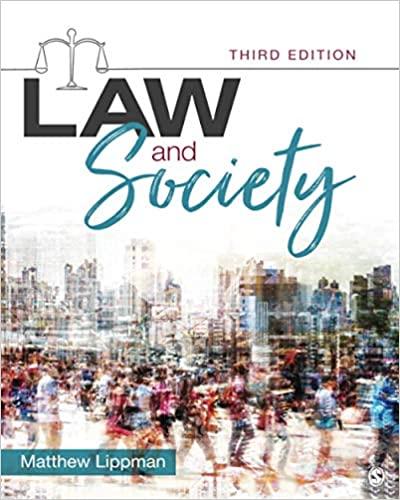Question
Certain rights, known as Intellectual Property Rights (IPR), are attached to intellectual property and cannot be infringed upon by individuals who do not have permission
Certain rights, known as Intellectual Property Rights (IPR), are attached to intellectual property and cannot be infringed upon by individuals who do not have permission to use it. IPRs let owners to prevent others from copying, imitating, or profiting from their work.
Patent infringement happens when a legally protected patent is used without permission by another person or company. Patents filed before June 8, 1995, have a 17-year validity period, while patents filed after that date have a 20-year validity period. The patent details are made available after the expiration date.
When an unauthorized party copies all or part of an original work, such as a work of art, music, or a novel, copyright breaches occur. To be considered an infringement, the replicated content does not have to be an identical copy of the original.
In the same way, trademark infringement happens when an unlicensed party uses a licensed trademark or a mark that looks similar to the licensed trademark. A competitor, for example, can employ a mark that is similar to a competitor's to disrupt business and attract customers. In order to leverage on other companies' strong brand impressions, organizations in other industries may employ identical or similar marks.
Non-disclosure agreements are frequently used to protect trade secrets (NDA). When a party to an agreement violates the agreement by disclosing all or parts of a trade secret to uninterested others, the trade secret is infringed upon. When an NDA is not there, it is feasible to commit trade secret infringement.
Because there are no particular accounting procedures for valuing each asset, many types of intellectual property cannot be classified as assets on the balance sheet. However, because market players are aware of the intellectual property's existence, the value of the property tends to be reflected in the stock price.
Some intangible assets, such as patents, are recognized as property because they have an expiration date. Through the process of amortization, these assets are assigned a numerical value. Amortization is a method of accounting that reduces the value of an intangible asset over time. As the useful life of the intangible asset approaches its end, this method assists the corporation in reducing income by expensing a certain amount each year for tax purposes.
A patent, for example, may only have 20 years before becoming public domain. A corporation would assign the patent a total value. By dividing the total value by 20 years, the patent would be expensed or amortized by the same amount each year for the next 20 years. For tax reasons, the amortized asset amount reduces the company's net income or profit each year. However, because intellectual property with a perpetual life, such as a trademark, does not expire, it is not amortized.
An Actual Situation
In 2017, Waymo sued Uber for allegedly stealing and implementing technology related to Waymo's self-driving car effort, which was extensively reported. The blueprints for the technology, while not yet fully functional, were valuable intellectual property for Waymo. They were able to use the judicial system to prevent Uber from using the information to improve their own self-driving car development after they claimed Uber had taken their intellectual property.
After reading your interesting discussion of IPs, I was reminded of the importance of knowing which subject matter is patentable under federal law. Therefore, using your research and readings, which subject matter is patentable under the federal IP laws?
Step by Step Solution
There are 3 Steps involved in it
Step: 1

Get Instant Access to Expert-Tailored Solutions
See step-by-step solutions with expert insights and AI powered tools for academic success
Step: 2

Step: 3

Ace Your Homework with AI
Get the answers you need in no time with our AI-driven, step-by-step assistance
Get Started


